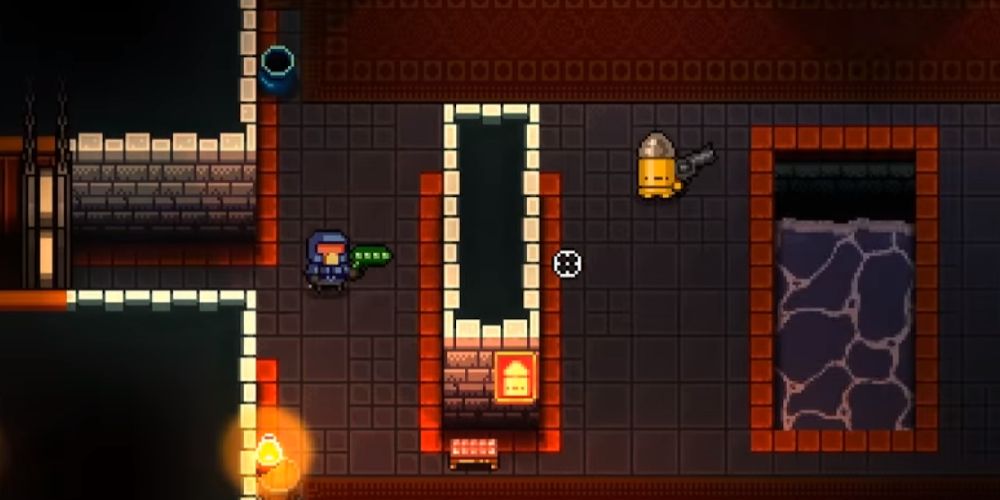Seeing the word "roguelike" on a game's description is enough for me to know that I won't like it.
I've given many different roguelikes a chance, including Streets of Rogue, Enter the Gungeon, Nuclear Throne, and even Crawl. There's nothing wrong with any of these games—it's just the fact that I don't understand the appeal of roguelikes.
So, what irks me about roguelikes the most? These are the main reasons why I just can't bring myself to enjoy roguelikes.
1. Permadeath
Death is a part of gaming. In a typical RPG, adventure game, or platformer, I can accept my unfortunate fate. I'll feel pretty angry about getting a "Game Over" screen for the fifth time, but I know that I can adopt a different strategy when I respawn.
There's just something about dying in a roguelike game that's incredibly discouraging. A gamer's worst nightmare is realizing that death has erased all of your progress and items. Roguelikes take this fear and make it a reality.
Whether you're at the beginning of the game or at the end, roguelikes don't care. You can lose all of your progress with one small misstep.
This makes roguelikes even harsher than roguelites, as roguelites will actually save some of your progress when you die. Roguelike players are stuck with permadeath, which can eventually drain you of all hopes of completing the game.
2. Lack of a Storyline
Roguelikes typically don't focus on storylines. If you're lucky, you'll get a brief introduction to the purpose of the game at the very start of the dungeon. Otherwise, you're left piecing together the environment to form a story that doesn't exist.
An intriguing storyline is one of the main reasons why I enjoy playing games, and the same is true for a ton of other gamers. A story adds a whole new layer of depth to a game.
Sure, there are great non-roguelike games out there that don't have a storyline, and that's okay. When roguelikes combine a lack of a story with other annoying elements (like permadeath), it almost makes the games not worth playing.
3. Your Success Depends on Chance
Roguelikes don't pit you against enemies—they pit you against the game's mechanics.
Each level is procedurally-generated to create different dungeons in every playthrough. Your survival depends on the enemies that spawn, along with the type of weapons that appear.
In the next level, you might encounter unexpected enemies or a set of weak weapons. This is basically the game's way of saying "Screw you!" You can thank these random levels for the underpowered knife that you pick up. Whatever weak weapon you find will ultimately become responsible for your loss of progress.
4. Roguelikes Are Starting to Look the Same
Many roguelikes embrace the pixelated, retro art style. Combine that with the top-down perspective, and you can barely tell the difference between each roguelike.
For example, roguelikes like Crypt of the Necromancer, Enter the Gungeon, and Streets of Rogue all have a very similar, pixelated art style. While there's nothing wrong with this style, it just gets boring when you start seeing it in so many roguelikes.
5. No Structure Leads to No Motivation
Randomized levels mean no structure. Since there's no clear path to the end of the game, you might find yourself feeling unmotivated.
Playing through a set of unpredictable levels isn't that exciting. Some might argue: "The levels are different every time, how can you get bored?"
Once you start over from the beginning of the game after dying, the game's environment begins to become repetitive and boring. Even a randomized change in layout can't compensate for that.
Roguelikes Aren't for Everyone
After trying several different roguelikes, I've realized that they're just not for me. Permadeath and procedurally-generated levels are what makes a roguelike a roguelike, and those elements just don't mesh well with my playstyle.
Roguelikes add variety to gaming, and I respect that. Since most roguelikes for PC aren't very demanding, more gamers have access to them. If you're into that, check out this list of lightweight games you can play on a non-gaming PC.
